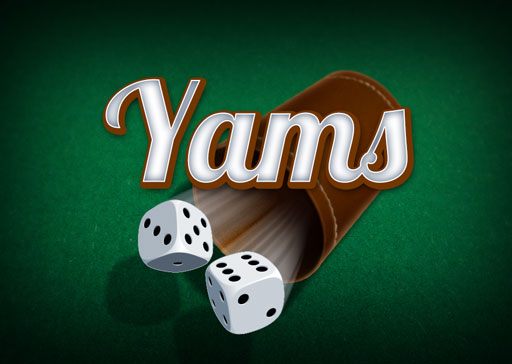
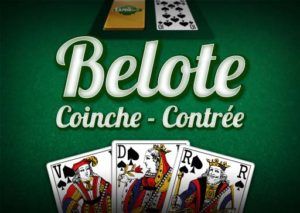
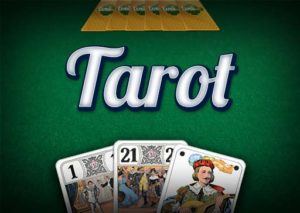
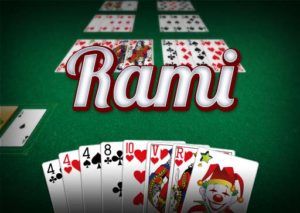
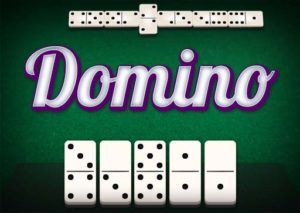
The origins of Yahtzee
A game with global roots
Yahtzee, also known as "Yahtzee", is a popular dice game that has spanned time and borders. While its modern version is relatively recent, its roots can be traced back to centuries of history, when dice games were already an important part of society.
The first dice games
Dice are one of mankind's oldest games. Traces of dice games can be found in ancient Egypt, Greece and even among the Romans. Dice have been found in tombs and ruins dating back over 5,000 years, testifying to their ritual and playful use. While these ancient games were not direct versions of Yahtzee as we know it today, they are its ancestors, sharing the same basis: the use of chance to create winning combinations.
Inspiration from poker
Modern Yahtzee is often compared to poker because of its similar combinations, such as brelans, squares and continuations. Indeed, some historians suggest that Yahtzee is a kind of "dice" version of poker. Indeed, in the early 20th century, card games were extremely popular, and the desire to recreate card games with dice led to the invention of variants like Yahtzee.
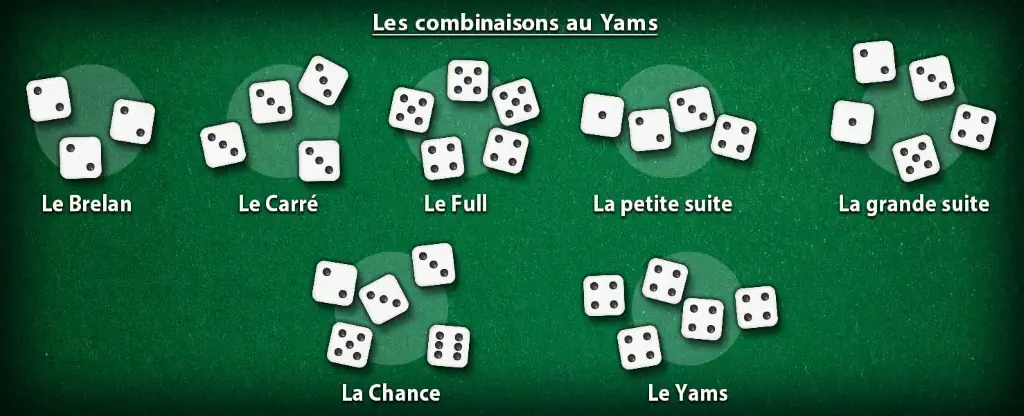
The invention of Yahtzee in the 1950s
The game we know today as Yahtzee took shape in the 1950s, when a Canadian couple developed a game they called "The Yacht Game" to entertain friends on cruises aboard their private yacht. The principle was simple: use five dice to obtain specific combinations, a concept very similar to today's Yahtzee.
In 1956, the couple presented the game to an American entrepreneur, Edwin S. Lowewho had already popularized another board game: Bingo. Realizing the potential of "The Yacht Game", Lowe bought the rights to the game, renamed it "Yahtzee" and marketed it on a large scale. Thanks to his marketing efforts, Yahtzee quickly became popular in the U.S. and, by extension, around the world.
The evolution of Yahtzee in Europe
The term "Yams", derived from "Yahtzee", is mainly used in Europe, particularly in France. Over the decades, this dice game has become a classic in many European households. The simplicity of the rules, combined with the game's strategic depth, has made Yahtzee a favorite pastime for board game enthusiasts.
In Europe, variants of the game appeared, sometimes with six dice instead of five, or with rules adjusted to suit local traditions. Despite these variations, the essence of the game remains the same: a combination of skill, strategy and luck.
Today's Yahtzee: between tradition and modernity
With the advent of digital technology, Yahtzee has reinvented itself. Numerous websites and applications now offer play online Yahtzee, allowing players from all over the world to compete remotely. Despite this modernization, Yahtzee retains its timeless charm, continuing to bring generations together for friendly or competitive games.

Yahtzee has also found its place in official competitions, with tournaments organized by game enthusiasts. Although not as high-profile as other board games, its community continues to grow, proving that Yahtzee remains a universal and timeless game.
From ancient Egypt to the luxury yachts of the 1950s, Yahtzee has evolved over the centuries while retaining its essence: a simple yet strategic dice game enjoyed the world over. Today, it continues to delight game enthusiasts, whether on a board or online.
